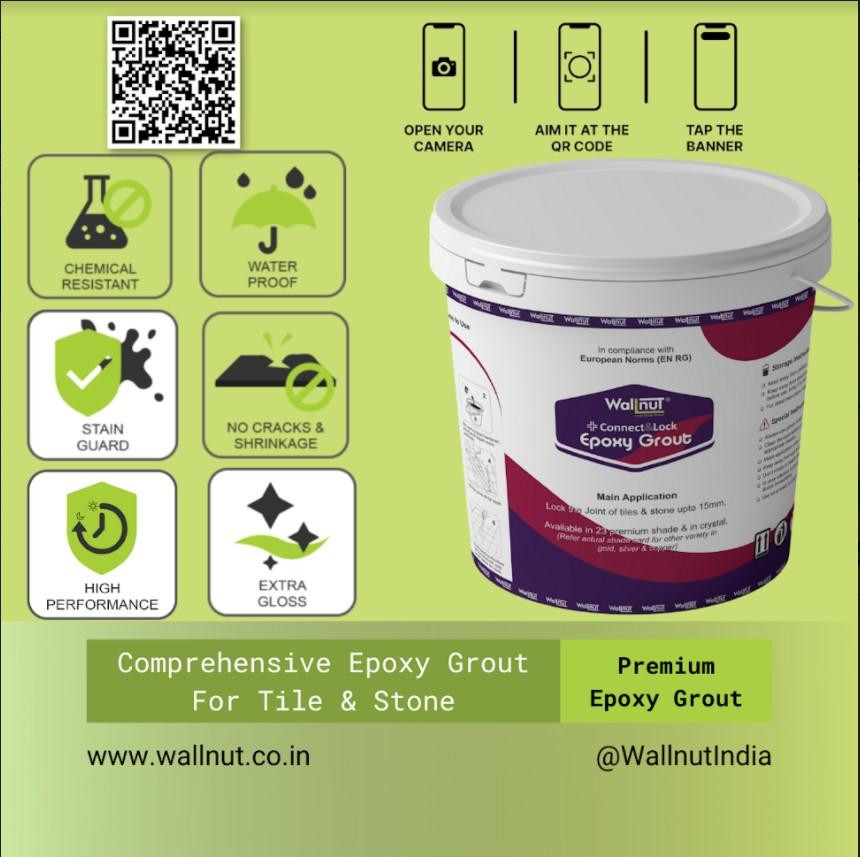Benefits of Epoxy grout
Epoxy grout is a product that consists of three components: a resin, a hardener, and an aggregate. It is essential that the resin mix with the hardener is done separately, before mixing with the aggregate. The mixing ratio of the resin with the hardener is very precise. Now we want to show you the benefits of epoxy grout, but first of all, we want to explain to you what are cement and epoxy grout.
Cement grout
Cementitious joints are made up of mortars with a cement-based binder and have always been used in residential environments. They are divided into two classes CG (cementitious grouts): CG1 is the normal class, CG2 is the improved class. To these, we can add two other classes, class A which is resistant to abrasion, and class W which is water repellency. In residential settings, CG1 type cement grouts are sufficient; On the other hand, when a floor is subject to high traffic and wear, to continuous variations in humidity and/or temperature, or to a continuous flow of water, it is necessary to opt for grouts that have a CG2 class and preferably also a class. A and W.
Unlike previous years, cementitious grouts, although not completely the same as epoxies, have good performances in terms of antiflorescence, water repellency, resistance to mold, reduced emissions of volatile organic compounds (VOC), and color resistance to the length of the time.
Epoxy grout
Epoxy grouts are based on epoxy resins. Due to the remarkable elasticity, water repellency, resistance to abrasion, resistance to chemical products and mechanical stresses, being
stain-resistant, efflorescence-free, anti-mold, antibacterial, epoxy grouts are widely used in all those environments defined as "technical", that is to say, subject to high flow rates, wear, continuous thermal and humidity variations and that require a high level of surface hygiene.
Unlike cementitious grouts, epoxy grouts are classified according to a single class, RG (resin grouts), which has all the characteristics mentioned above.

The prices of epoxy grout are higher than the prices of cement grout. But, given that large ultra-thin formats, such as laminated stoneware, there is a certain reduction in costs, since the amounts of grout depend on the width, length, and thickness of the tile as well as the width of the joint.
Benefits of Epoxy grout
Epoxy grouts used to be used only for industrial purposes, and the great popularity among consumers was only recently acquired. Fill the space between the tiles as much as possible, thus avoiding the contamination of the joints, the formation of mold and fungus on them. The trowelling mix has a number of characteristics that determine its popularity for use in construction.
Advantages of epoxy grout:
-It can be used instead of glue.
-The mechanical resistance has increased. Thanks to this, the tile serves much longer than with the cement grout.
-Leaves no water or steam. Epoxy grout provides reliable protection against pathogenic mold and mildew, which is not unimportant, as mold is harmful to human health.
-Resistant to dirt. The grout does not turn black and does not change color, which indicates its high decorative qualities.
-It is not susceptible to chemical attacks, it does not enter into dangerous reactions with other chemical elements.
These are some reasons why Epoxy grout is the best option for work. To see the best prices and quality of epoxy grout, check out our products:
https://wallnut.co.in/products-solutions/connect-lock-series/epoxy-grout/
https://wallnut.co.in/epoxy-grout-for-tiles/























